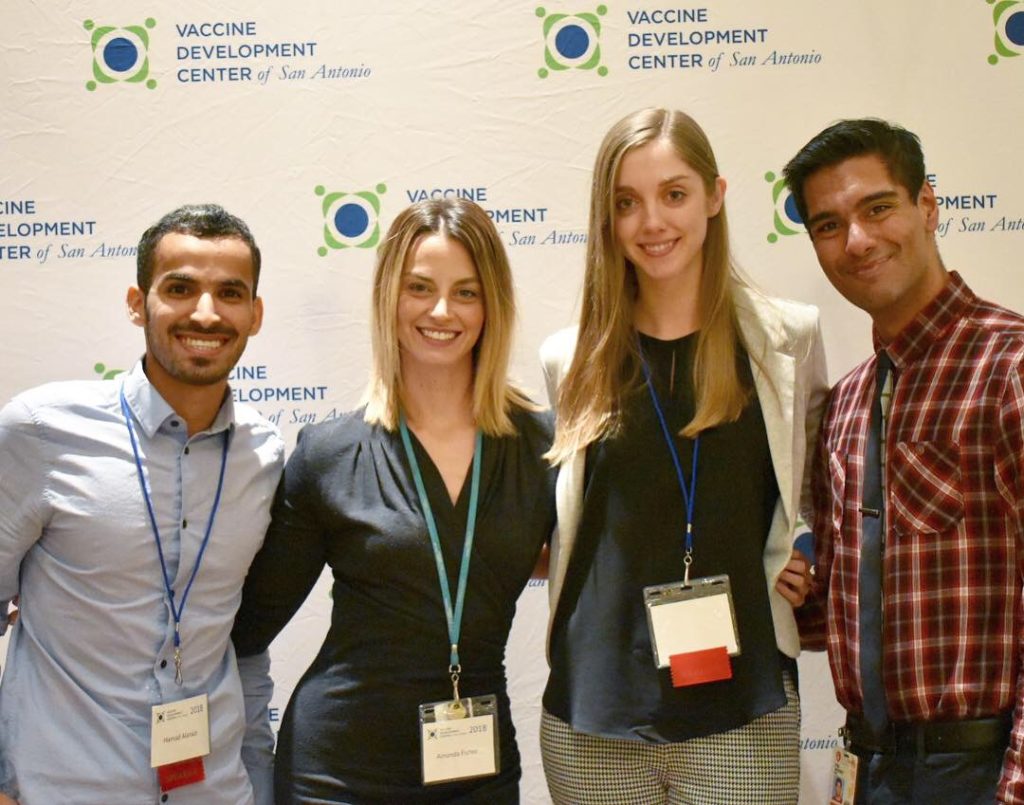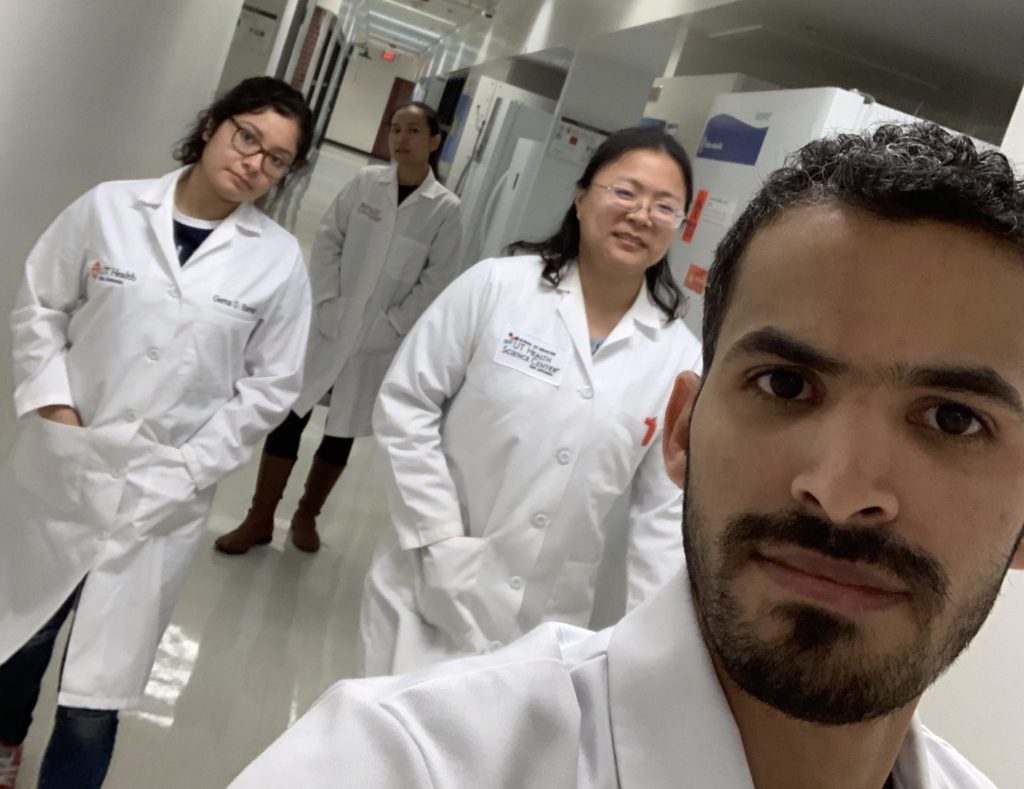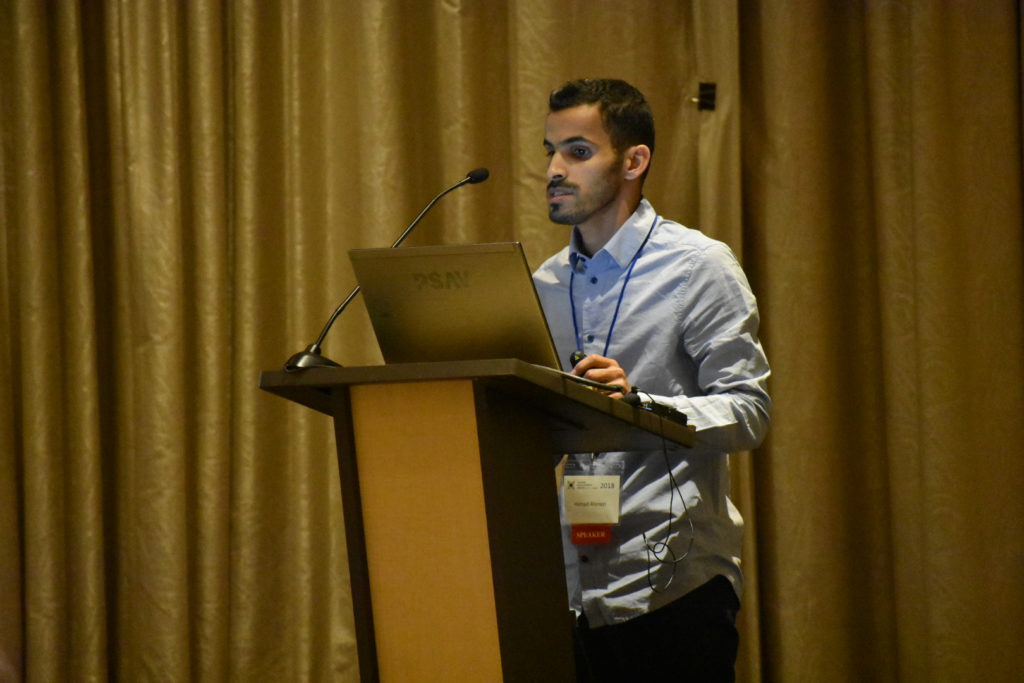Final Words: Hamad Alanazi, IBMS, Molecular Immunology & Microbiology
Your name, program, dissertation title.
My name is Hamad Alanazi and I am in the IBMS (Molecular Immunology & Microbiology) program. My dissertation title is “Innate Sensing of Aeroallergen-associated Immunogenic RNA Modulates Type 2 Lung Inflammation”
Please tell me about yourself, why did you pick UT Health San Antonio, and your program.
I am originally from Saudi Arabia. After completing my undergraduate studies in the field of medical laboratory sciences in my home country, I wanted to advance my knowledge in biomedical sciences, specifically, immunology. So, I joined UT Health San Antonio in 2015-2021 for my master and PhD studies in the immunology program. Choosing to pursue my graduate studies at UT Health San Antonio was one of the best decisions I made in my education career. I wanted to study in a school where I can enhance my knowledge in scientific research and UT Health San Antonio was the one. The study plan of the immunology program in UT Health San Antonio is so powerful and just what I needed.
What has been the highlight of graduate school so far? Have you won any awards or have there been any achievements you’ve been proud of?
My work in UT Health San Antonio has resulted in 7 publications (2 still in preparation). During my studies at UT Health San Antonio, I have received 2 fully-funded scholarships and I have been selected to give 6 oral and poster presentations at annual immunology or immunology-related conferences. Most importantly, I had the honor to get to know many of the amazing people at UT Health San Antonio.
Please provide a few sentences summarizing your dissertation. What was the experience like for you?
We hear a lot about the hygiene hypothesis but we do not fully understand the mechanisms behind it on a molecular level. How microbial agents protect us from the development of allergies has been the focus for many research groups in the past years. Our lab has investigated the role of immune system, specifically, innate immune sensors, in modulating allergic diseases. We found that immunostimulatory RNA derived from viruses or certain allergens can provide protection from acute allergic inflammation in mice through RNA receptors. It was a great experience to explore how viral infections or viral-derived sequences contribute to protection from allergies through innate immune sensors.
Why are you passionate about your research topic? How did you first become interested in it?
Innate immune system is our first shield against diseases. It has always intrigued me how innate sensors serve as messengers that warn the host cells from an upcoming danger. In my masters and PhD studies, I focused on understanding the role of DNA and RNA sensors in viral infections and allergies. It is such an incredible experience to understand how our immune system works or how a tiny ligand (e.g., LPS) trigger a cascade of innate immune events that ultimately shape the adaptive immune response.
What’s next?
I plan to go back to my home country and work in academia.
Any advice for your fellow graduate students?
Passion, Persistence and long-term goals. You should have these three to enjoy graduate school.





